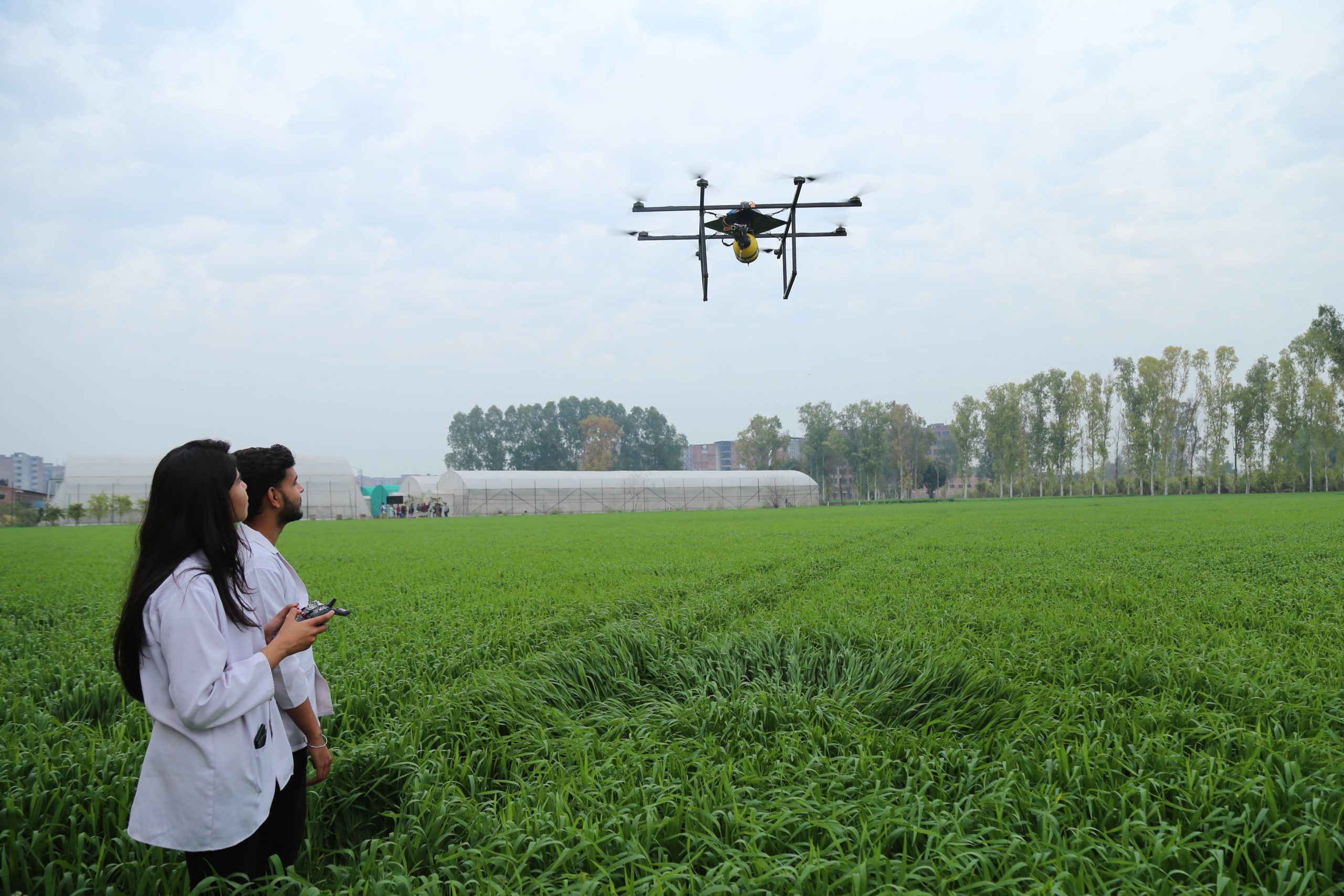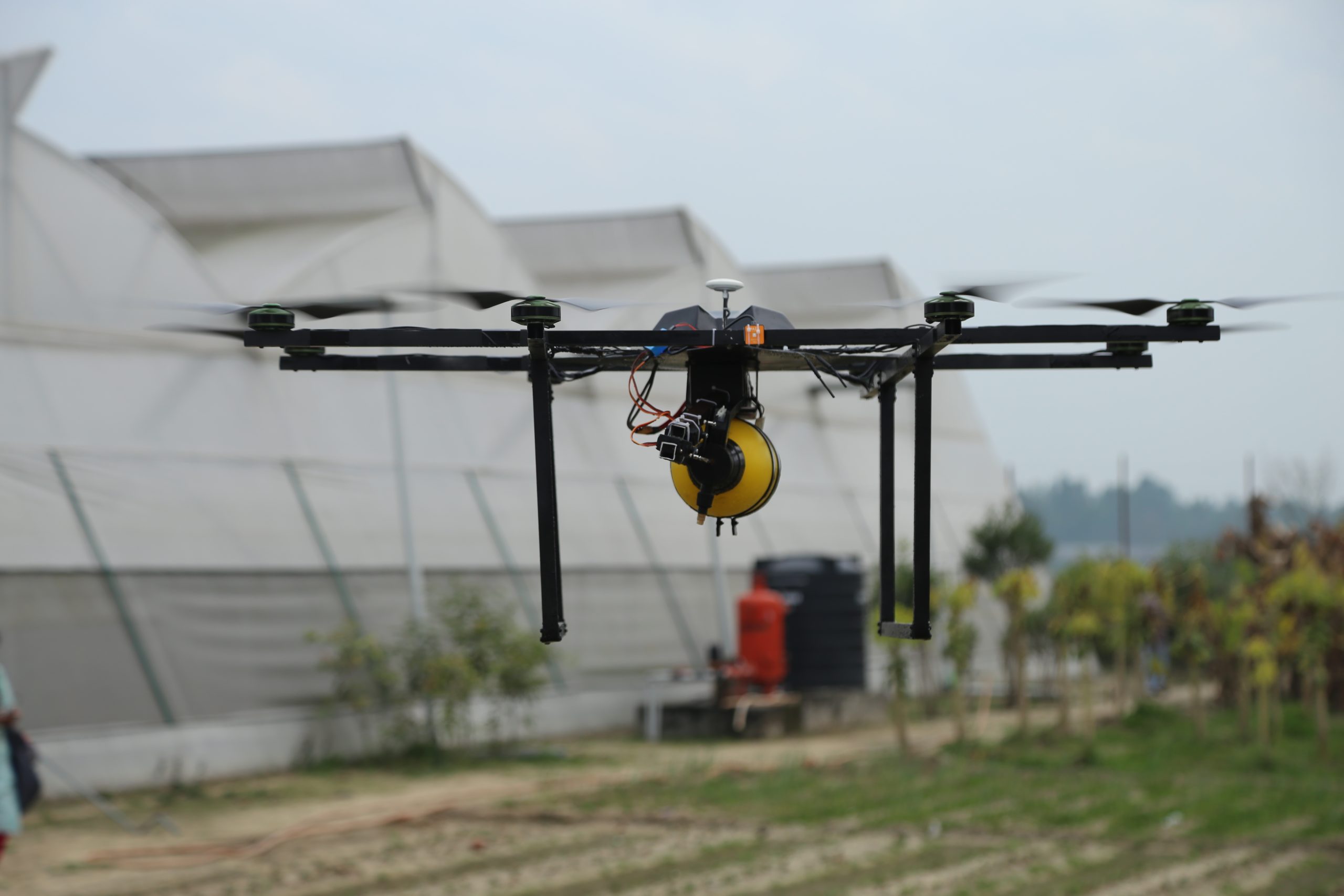JALANDHAR: Lovely Professional University (LPU) students have conceptualised and designed the ‘Flying Farmer’, a drone that can be exclusively deployed in farming and field surveys. The ‘Flying Farmer’ is a wireless, sensor device that can be used in mapping and survey of yields and biomass. It estimates the nutrient content of the soil to aid production growth and reduce crop damage.
Each drone can fly for 25 minutes on a full charge and the entire apparatus costs approximately Rs. 10,000 – 15,000. 45 students and 5 faculty members from the Electronics, Mechanical, and Agricultural Engineering department of LPU have been actively involved in developing this drone technology.
Drone technology for crop surveillance to bring precision to farming:
The ‘Flying Farmer’ is designed to solve two major agricultural issues faced by farmers – ‘pesticide treatment’ and ‘weed detection’. With rising labor costs and a shortage of labor, drone technology is hypothesised to replace human intervention in delivering pesticide treatment. Pre-programmed drones can target specific farm areas and crops to deliver pesticides, avoiding wastage and over the use of pesticides. Secondly, human weed detection is inefficient and prone to error, leading to lower production. Drones, programmed with computer vision algorithms and infrared sensors, can detect the exact position and nature of weeds and transmit information to the farmer for timely action. The field trials conducted at LPU led to an improvement of 15-20% in produce quantity.
LPU to not sign patent; make tech available to all:
The LPU will not file for a patent but instead will open source the technology so that it can be inexpensively available to any farmer, anywhere. The university earlier had leveraged an internal research grant of Rs 1.2 crore to develop the technology.
LPU School of Agriculture is among the top Agricultural Science colleges in India. It is the first Indian Private University to be granted ICAR accreditation by the Ministry of Agriculture, Government of India.
What does India’s drone policy say?
In December 2018, the Indian Govt. launched a drone policy, which allows for the application of drones, next to for instance, their deployment in infrastructural works. The DGCA, GOI, regulations implicitly permits the use of RPAS i.e., Drone/ UAV for agricultural purposes except to spray pesticides until specifically cleared.
Limitations and Challenges in drone tech:
Drone technology has got considerable potential in carrying out several agricultural operations very efficiently. It can save labour and also accomplish the norms of social distancing in the time of COVID 19 and national lockdown. However, high initial cost and policy reforms are some of the challenging areas in making it popular and farmers’ friendly. There is also a need of conducting research for optimizing operation protocols and calibrating and validating the drone use.
Future of Drone Tech in the agricultural sector in India:
The modern farming industry is at a turning point. With the development of more advanced farm management techniques, such as precision agriculture, industry professionals now have more tools than ever to improve the accuracy and efficiency of processes. The use of different types of agricultural drones for solving specific tasks of plant growing is being studied for developing SOP and algorithms, particularly for the creation of electronic maps of fields, operational monitoring of crop conditions, evaluation of germination, predicting crop yields, checking the quality of ploughing, maintaining environmental monitoring of agricultural land, etc.
During the last couple of years, the drone market for agriculture has expanded considerably.











